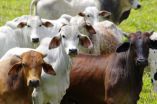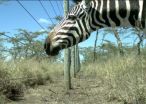(Press-News.org) Girls who are told by a parent, sibling, friend, classmate or teacher that they are too fat at age 10 are more likely to be obese at age 19, a new study by UCLA psychologists shows.
The study looked at 1,213 African-American girls and 1,166 white girls living in Northern California, Cincinnati and Washington, D.C., 58 percent of whom had been told they were too fat at age 10. All the girls had their height and weight measured at the beginning of the study and again after nine years.
Overall, the girls labeled fat were 1.66 times more likely than the other girls to be obese at 19, the researchers found. They also found that as the number people who told a girl she was fat increased, so did the likelihood that she would be obese nine years later. The findings appear in the June 2014 print issue of the journal JAMA Pediatrics and are published online April 28.
"Simply being labeled as too fat has a measurable effect almost a decade later. We nearly fell off our chairs when we discovered this," said A. Janet Tomiyama, an assistant professor of psychology in the UCLA College of Letters and Science and the study's senior author. "Even after we statistically removed the effects of their actual weight, their income, their race and when they reached puberty, the effect remained.
"That means it's not just that heavier girls are called too fat and are still heavy years later; being labeled as too fat is creating an additional likelihood of being obese."
Co-author Jeffrey Hunger, a graduate student at UC Santa Barbara, said that simply being called fat may lead to behaviors that later result in obesity.
"Being labeled as too fat may lead people to worry about personally experiencing the stigma and discrimination faced by overweight individuals, and recent research suggests that experiencing or anticipating weight stigma increases stress and can lead to overeating," he said.
The data used in the study came from the National Heart, Lung and Blood Institute, part of the National Institutes of Health.
No connection between dieting and improvements in health
In a separate study published last December, Tomiyama, former UCLA psychology faculty member Traci Mann (now at the University of Minnesota–Minneapolis) and UCLA graduate student Britt Ahlstrom analyzed 21 long-term studies on weight loss and health and found no clear relationship between weight loss and health improvements related to hypertension, diabetes, cholesterol and blood glucose.
"We found no connection whatsoever between the amount of weight loss — whether small or large — and any of these health outcomes," said Tomiyama of the study, which appeared in the health section of the journal, Social and Personality Psychology Compass.
"Everyone assumes that the more weight you lose, the healthier you are, but the lowest rates of mortality are actually in people who are overweight," she said. "At a body mass index of 30, which is labeled obese, there is no increased risk of mortality. This has now been shown over and over again. The highest rate of mortality is in the underweight people."
The research findings also confirmed the results of a 2007 study in which Tomiyama, Mann and colleagues analyzed 31 long-term studies and found that people can initially lose 5 to 10 percent of their weight on any number of diets, but the majority regain all the weight, plus more. Only a small minority, they discovered, sustain their weight loss.
"Eating in moderation is a good idea for everybody, and so is regular exercise," Mann said at the time of the initial study.
"If dieting worked, it wouldn't be a $60 billion dollar industry," said Tomiyama, who noted that trying to be thin is similar to trying to be taller.
"The genetic power over weight is about the same as the power of genes over your height," she said. "People who say it's your fault if you're fat underappreciate the role of genes."
Research has shown that twins separated at birth have very similar weights, regardless of the environment in which they grow up, Tomiyama noted.
She recommends focusing on eating healthier and fitness rather than obsessing about weight and strongly opposes stigmatizing people who are overweight.
"When people feel bad, they tend to eat more, not decide to diet or take a jog," she said. "Making people feel bad about their weight could increase their levels of the hormone cortisol, which generally leads to weight gain."
Tomiyama, who directs UCLA's Dieting, Stress and Health (DiSH) laboratory, is conducting follow-up studies with the women in Northern California who participated in the study published in JAMA Pediatrics; these women are now in their 30s and many of them have children. They came from a range of economic backgrounds. She also is currently studying research subjects who have been stigmatized for being overweight and measuring their cortisol levels.
INFORMATION: END
Simply being called 'fat' makes young girls more likely to become obese
Trying to be thin is like trying to be tall, say UCLA psychologists
2014-04-28
ELSE PRESS RELEASES FROM THIS DATE:
UCLA research team selected to present original epilepsy research on Capitol Hill
2014-04-28
A graduate student in Semel Institute for Neuroscience and Human Behavior, and two of his undergraduate trainees, were selected by the Council on Undergraduate Research to present their original research on Capitol Hill in Washington, D.C., on Tuesday.
Wesley Kerr, whose graduate studies will be completed in the UCLA Department of Biomathematics, and his trainees, Akash Patel and Sarah Barritt, will present their poster entitled "Computer-Aided Diagnosis of Epilepsy Using Clinical Information" outlining advances in the use of computational machine learning to help clinicians ...
Mystery of the pandemic flu virus of 1918 solved by University of Arizona researchers
2014-04-28
A study led by Michael Worobey at the University of Arizona in Tucson provides the most conclusive answers yet to two of the world's foremost biomedical mysteries of the past century: the origin of the 1918 pandemic flu virus and its unusual severity, which resulted in a death toll of approximately 50 million people.
Worobey's paper on the flu, to be published in the early edition of the Proceedings of the National Academy of Sciences (PNAS) on April 28, not only sheds light on the devastating 1918 pandemic, but also suggests that the types of flu viruses to which people ...
Success really does breed success, unique online experiments find
2014-04-28
Success really does breed success – up to a point - found researchers from UCL and Stony Brook University, following a series of unique on-line experiments.
For decades, it has been observed that similar people experience divergent success trajectories, with some repeatedly succeeding and others repeatedly failing. Some suggest initial success can catalyse further achievements, creating a positive feedback loop, while others attribute a string of successes to inherent talent. To test these views the researchers conducted four experiments that measured the impact of experimental ...
How Brazilian cattle ranching policies can reduce deforestation
2014-04-28
Berkeley — There is a higher cost to steaks and hamburgers than what is reflected on the price tags at grocery stores and restaurants. Producing food – and beef, in particular – is a significant source of greenhouse gas emissions, which are projected to grow as rising incomes in emerging economies lead to greater demands for meat.
But an encouraging new study by researchers at the University of California, Berkeley, and international collaborators finds that policies to support sustainable cattle ranching practices in Brazil could put a big dent in the beef and food ...
Brazilian agricultural policy could cut global greenhouse gas emissions
2014-04-28
Brazil may be able to curb up to 26% of global greenhouse gas emissions from deforestation by encouraging the intensification of its cattle production, according to a new study from researchers at the International Institute for Applied Systems Analysis (IIASA) and international collaborators.
The study, published in the journal Proceedings of the National Academy of Sciences, showed that by subsidizing semi-intensive pasture-based cattle production or taxing conventional pastures Brazil may be able to deliver a substantial cut in global greenhouse gas emissions, even ...
Oxytocin promotes social behavior in infant rhesus monkeys
2014-04-28
The hormone oxytocin appears to increase social behaviors in newborn rhesus monkeys, according to a study by researchers at the National Institutes of Health, the University of Parma in Italy, and the University of Massachusetts Amherst. The findings indicate that oxytocin is a promising candidate for new treatments for developmental disorders affecting social skills and bonding.
Oxytocin, a hormone produced by the pituitary gland, is involved in labor and birth and in the production of breast milk. Studies have shown that oxytocin also plays a role in parental bonding, ...
Scientists identify antibodies against deadly emerging disease
2014-04-28
Scientists at Dana-Farber Cancer Institute have identified natural human antibodies against the virus that causes Middle East Respiratory Syndrome (MERS), a step toward developing treatments for the newly emerging and often-fatal disease.
Currently there is no vaccine or antiviral treatment for MERS, a severe respiratory disease with a mortality rate of more than 40 percent that was first reported in Saudi Arabia in 2012.
In laboratory studies reported in the Proceedings of the National Academy of Sciences (PNAS), the researchers found that these "neutralizing" antibodies ...
Study: Tart cherry juice increases sleep time in adults with insomnia
2014-04-28
SAN DIEGO, Calif. April 28, 2014 – A morning and evening ritual of tart cherry juice may help you sleep better at night, suggests a new study presented today at the Experimental Biology 2014 meeting. Researchers from Louisiana State University found that drinking Montmorency tart cherry juice twice a day for two weeks helped increase sleep time by nearly 90 minutes among older adults with insomnia.
These findings were presented Monday, April 28, at the "Dietary Bioactive Components: Antioxidant and Anti-inflammatory Effects of Dietary Bioactive Components" section of ...
Decrease in large wildlife drives an increase in rodent-borne disease and risk to humans
2014-04-28
Populations of large wildlife are declining around the world, while zoonotic diseases (those transmitted from animals to humans) are on the rise. A team of Smithsonian scientists and colleagues have discovered a possible link between the two. They found that in East Africa, the loss of large wildlife directly correlated with a significant increase in rodents, which often carry disease-causing bacteria dangerous to humans. The team's research is published in the Proceedings of the National Academy of Sciences, April 28.
"Our study shows us that ecosystem health, wildlife ...
Smart home programming: Easy as 'if this, then that'
2014-04-28
PROVIDENCE, R.I. [Brown University] — The idea of a smart home sounds promising enough. Who doesn't want a house full of automated gadgets — from light switches to appliances to heating systems — that know exactly when to turn on, turn off, heat up or power down?
But in order for all those devices to do what they're supposed to do, they'll need to be programed — a task the average homeowner might not have the interest or the tech-savvy to perform. And nobody wants to call tech support just to turn on a light.
A group of computer science researchers from Brown and Carnegie ...
LAST 30 PRESS RELEASES:
Scientists show how to predict world’s deadly scorpion hotspots
ASU researchers to lead AAAS panel on water insecurity in the United States
ASU professor Anne Stone to present at AAAS Conference in Phoenix on ancient origins of modern disease
Proposals for exploring viruses and skin as the next experimental quantum frontiers share US$30,000 science award
ASU researchers showcase scalable tech solutions for older adults living alone with cognitive decline at AAAS 2026
Scientists identify smooth regional trends in fruit fly survival strategies
Antipathy toward snakes? Your parents likely talked you into that at an early age
Sylvester Cancer Tip Sheet for Feb. 2026
Online exposure to medical misinformation concentrated among older adults
Telehealth improves access to genetic services for adult survivors of childhood cancers
Outdated mortality benchmarks risk missing early signs of famine and delay recognizing mass starvation
Newly discovered bacterium converts carbon dioxide into chemicals using electricity
Flipping and reversing mini-proteins could improve disease treatment
Scientists reveal major hidden source of atmospheric nitrogen pollution in fragile lake basin
Biochar emerges as a powerful tool for soil carbon neutrality and climate mitigation
Tiny cell messengers show big promise for safer protein and gene delivery
AMS releases statement regarding the decision to rescind EPA’s 2009 Endangerment Finding
Parents’ alcohol and drug use influences their children’s consumption, research shows
Modular assembly of chiral nitrogen-bridged rings achieved by palladium-catalyzed diastereoselective and enantioselective cascade cyclization reactions
Promoting civic engagement
AMS Science Preview: Hurricane slowdown, school snow days
Deforestation in the Amazon raises the surface temperature by 3 °C during the dry season
Model more accurately maps the impact of frost on corn crops
How did humans develop sharp vision? Lab-grown retinas show likely answer
Sour grapes? Taste, experience of sour foods depends on individual consumer
At AAAS, professor Krystal Tsosie argues the future of science must be Indigenous-led
From the lab to the living room: Decoding Parkinson’s patients movements in the real world
Research advances in porous materials, as highlighted in the 2025 Nobel Prize in Chemistry
Sally C. Morton, executive vice president of ASU Knowledge Enterprise, presents a bold and practical framework for moving research from discovery to real-world impact
Biochemical parameters in patients with diabetic nephropathy versus individuals with diabetes alone, non-diabetic nephropathy, and healthy controls
[Press-News.org] Simply being called 'fat' makes young girls more likely to become obeseTrying to be thin is like trying to be tall, say UCLA psychologists







